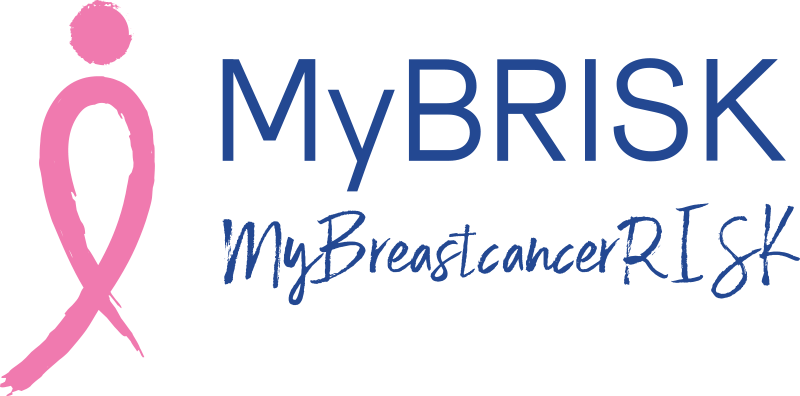
Conference Program – DRAFT
Day 1 – Tuesday, October 29th, 2024
9:30am: Meeting Open (Registration available)
Session 1
Chair: Wendy Ingman
10:00am: Acknowledgement of Country
10:05am: Conference Welcome – John Hopper
10:10am: Sandy Minck and Krysty Sullivan, Consumer Representatives: The vital role of consumer and community engagement to shape the translation of research findings into clinical practice
10:20am: Carolyn Nickson, The Daffodil Centre: Consideration of breast density in the ROSA Breast project
10:35am: Avisak Bhattacharjee, University of Adelaide: The impact of breast density notification on anxiety in South Australian women undergoing breast cancer screening
10:50am: Jennifer Stone, University of Western Australia: Perceptions of breast cancer risk following breast density notification in a population-based screening program
11:05am: John Hopper, University of Melbourne: Mammographic density, age, and risks of interval and screen-detected breast cancers
11:20pm: Vivienne Milch, BreastScreen Australia: Reporting breast density in the BreastScreen Australia program – developing an evidence-based Position Statement
11:30: Panel Discussion “How to best report breast density in Australia?”
Panel members include:
A/Prof Michelle Reintals, Radiologist and Clinical Director of BreastScreen South Australia
Dr Daniel Lee, Radiologist and Clinical Director of Imaging Associates, Victoria
Dr Sandy Minck, Community Representative, MyBRISK Centre for Research Excellence, Australian Breast Density Consumer Advisory Council
Dr Brooke Nickel, Early career researcher, University of Sydney
Ms Rita Butera, CEO of BreastScreen Victoria
12:30pm: Lunch
Session 2
Chair: John Hopper
1:30pm: John Shepherd, University of Hawaii: Artificial Intelligence for Breast Cancer Risk Assessment
1:50pm: TBC
2:10pm: Ali Farajpour, University of Adelaide: A nonlocal biomechanical model of elastography to improve breast cancer detection in women with high mammographic density
2:25pm: Kaier (Kyle) Wang, Volpara Health: Influence of image processing on candidate mammography masking risk predictors
2:40pm: Osamah Al-qershi, University of Melbourne: AutoCumulus: An automated mammographic density measure created using artificial intelligence
2:55pm: Joohon Sung, Seoul National University: AI-Powered Identification of High-Risk Breast Cancer Subgroups Using Mammography: A Multicenter Study Integrating Automated Brightest Density Measures with Deep Learning Metrics
3:15pm: Anita Pereira, University of Chile: Consumption of Ultra-Processed Foods and Breast Density in Adolescence
3:30pm: Afternoon tea
Session 3
Chair: Rik Thompson
4:00pm: Mary Beth Terry, Columbia University: Breast tissue characteristics and windows of susceptibility
4:20pm: Anita Pereira, University of Chile: Is a higher metabolic syndrome score associated with breast density after puberty onset?
4:35pm: Andy Redfern, University of Western Australia: The Fall and Rise of Mammographic Density: Guidance to Optimal Endocrine Breast Cancer Management
4:55pm: Hanieh Heydarlou, University of Adelaide: The role of toll-like receptor signalling in mammographic density
5:10pm: Charlotta Dabrosin, Linköping University: The role of the microenvironment in the progression of cancer in dense breast tissue
5:30pm: Dinner
Session 4
Chair: Jennifer Stone
6:00pm: Per Hall, Karolinska Institute: Primary prevention of breast cancer using tamoxifen and its metabolites
6:20pm: Mads Nielsen, University of Copenhagen: An update of AI applications to mammography within screening programs in Denmark
6:40pm: Helen Frazer, University of Melbourne: Comparison of AI-integrated pathways with human-AI interaction in population mammographic screening for breast cancer
7:00pm: John Hopper, University of Melbourne: BRAIx risk score: an automated mammogram-based biomarker for breast cancer created by applying artificial intelligence
7:20pm: Harry Hill, University of Sheffield: Expected economic benefits of risk-stratified breast cancer screening based on breast imaging risk assessment
7:35pm: Aileen Burke, RCSI University of Medicine and Health Sciences: Novel measures of local breast density and their association with breast cancer risk factors among women undergoing image-guided breast biopsy
7:50pm: Rasha Alhaj, Queen Mary University of London: Breast cancer risk assessment using classical risk factors and breast density: Enhancing future screening programs
8:05pm: Day 1 close
Day 2 – Wednesday, October 30th, 2024
Session 5
Chair: John Shepherd
8:45am: John Shepherd, University of Hawaii: Highlights from Day 1
8:55am: Lusine Yaghjyan, University of Florida: Associations of stem cell markers CD44, CD24 and ALDH1A1 with mammographic breast density in women with benign breast biopsies
9:15am: Jennifer Brooks, University of Toronto: Implementation of risk stratified screening: Finding a way forward
9:35am: Andre Khalil and Joshua Hamilton, University of Maine: Novel textural analysis of mammographic tissue subtypes provides superior cancer vs. benign discrimination
9:50am: Mahfuz Syed Al Hasan, Washington University School of Medicine: Multivitamin Supplement Use and Mammographic Breast Density
10:05am: Gerda Evans, Australian Breast Density Consumer Advisory Council: Over-Treatment, Not OverDiagnosis, is the Real Problem in Managing Breast Cancer
10:15am: Sanchia Aranda, Cancer Council Australia: An update regarding the BreastScreen Australia Review
10:30: Morning Tea
Session 6
Chair: Mary Beth Terry
11:00am: Jennifer Stone, University of Western Australia: Dense breast notification following screening mammography: a Western Australian primary care perspective
11:15am: Anna WithanageDona, University of Melbourne: BRISK: simplifying breast cancer risk assessment in primary care
11:30am: Tong Li, University of Sydney: Factors associated with private or public breast cancer screening attendance in Queensland, Australia: A retrospective cross-sectional study
11:45pm: Kevin Nguyen, University of Melbourne: Mammographic density, family history, and risks of breast cancers for young women under age 50 years
12:00pm: Lunch
12:30pm: Victorian Comprehensive Cancer Centre Grand Round Presentation
Chair: Kara Britt
“What the global trends in breast cancer reveal and conceal”
Mary Beth Terry, Columbia University
1:30pm: Discussion: Why Study Mammographic Density in 2026? Fifty years of research
2:00pm: Meeting Close
3:00pm – 6:00pm: Social Event departing from The Prince Alfred Hotel
